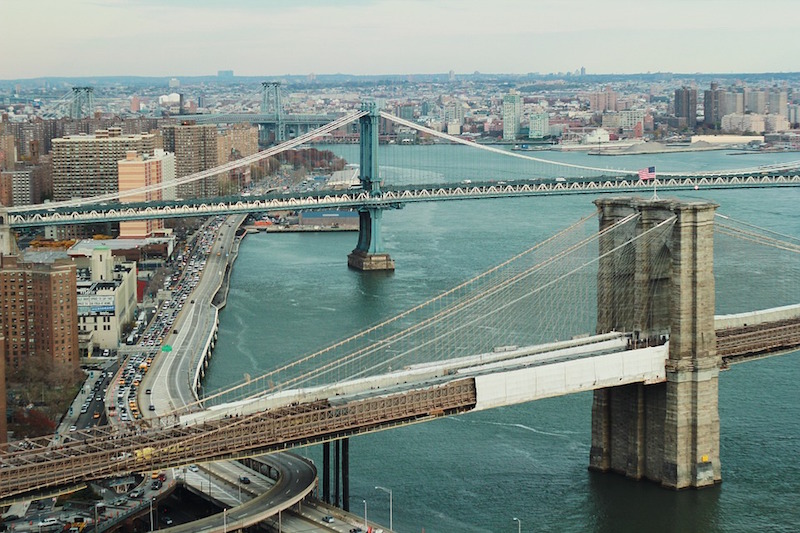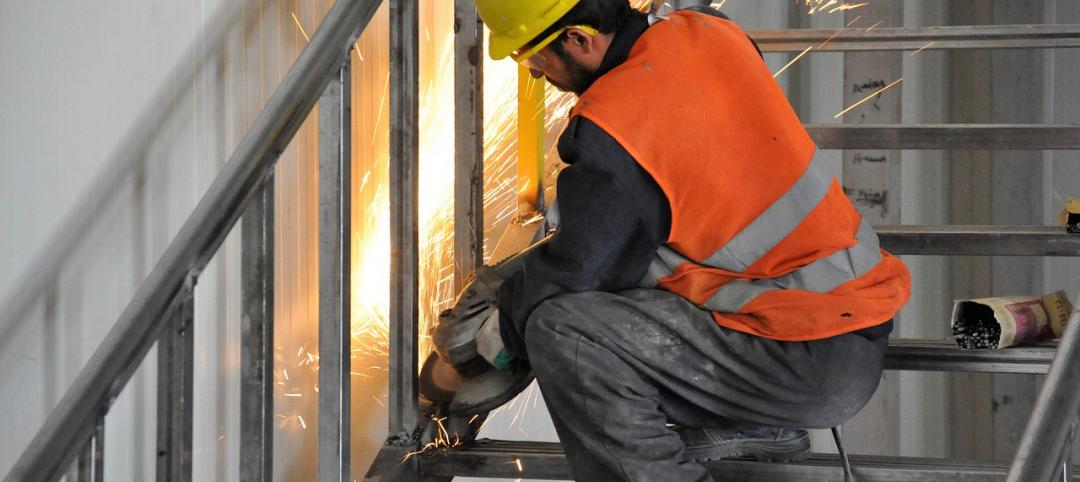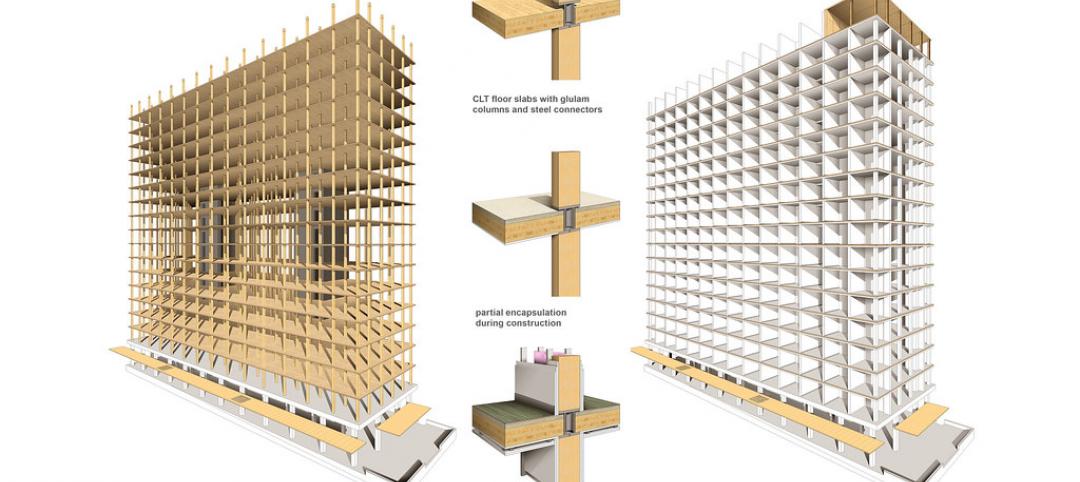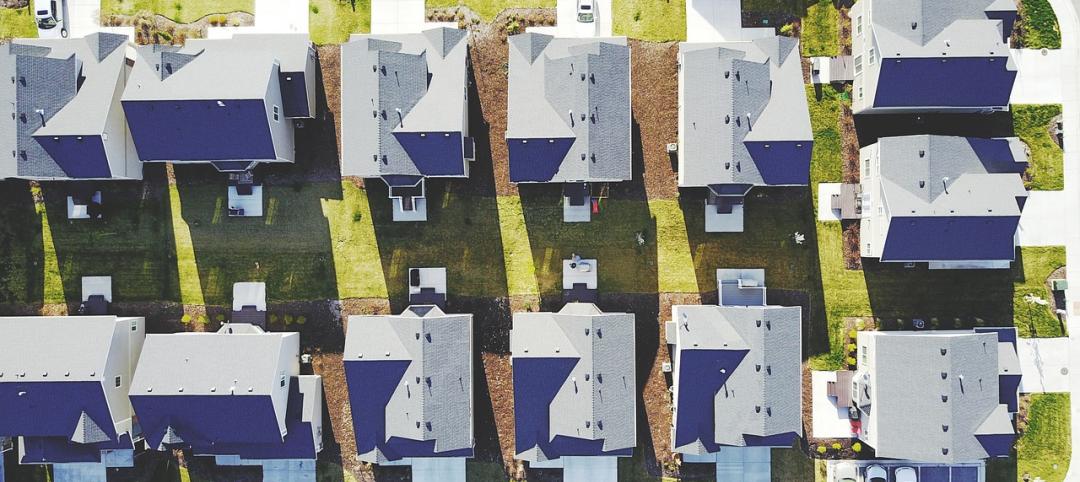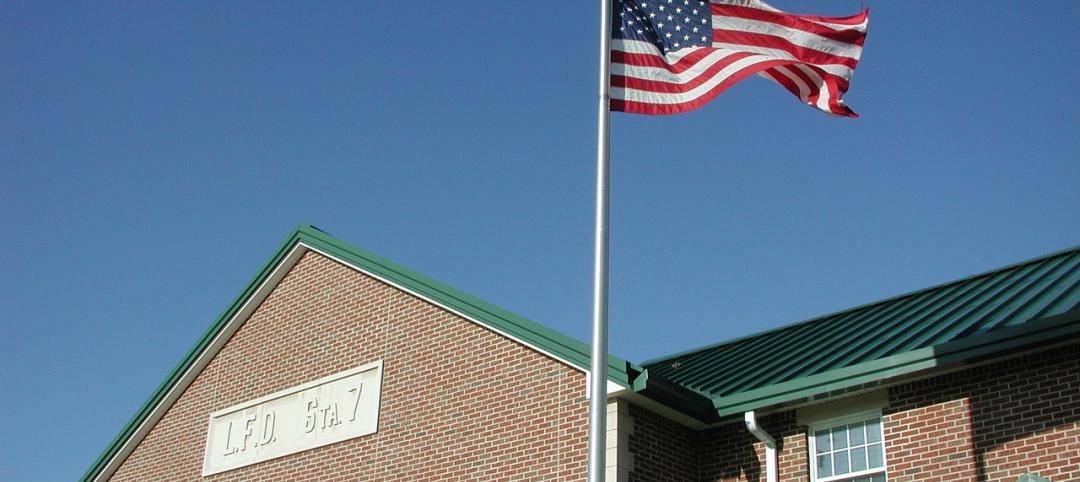The developer of a New Jersey condominium development and its architecture firm face a $10 million construction defect verdict in a case involving non-compliance with fire codes.
The Grandview I building on the Hudson River, developed by Hovnanian Enterprises’ subsidiary, K. Hovnanian and designed by RTKL New Jersey Architects, was alleged to have been built in a condition that was not compliant with fire codes. The plaintiff—the condominium association--alleges that the developer knew about the non-compliance and failed to disclose this fact with buyers.
According to the plaintiff’s attorneys, the architect designed the building with plywood subflooring and later warned the developer that to comply with code the structure would have to be reclassified from Type 2 to Type 3. The reclassification would have allowed plywood if the building’s exterior steel-with-brick-veneer walls were rebuilt with code-required masonry walls.
The building codes provide for five types of buildings, ranging from the most fire-resistant Type 1 — often a skyscraper — to Type 5, typically a wood-framed house. Defense attorneys argued that the plywood flooring was not a life-safety issue, since fire alarms and exits would allow all residents to safely vacate the building. The condo association's attorneys agreed that there was no threat to residents' lives, but that property could suffer more damage as a result of the code violation.
Related Stories
Codes and Standards | Aug 29, 2019
Industry leaders ask for government help as trades shortage worsens
AGC asks for more funding for education and increased immigration to fill gaps.
Codes and Standards | Aug 29, 2019
Code-conforming wood design guide available
The guide summarizes provisions for the use of wood and wood products in the 2018 IBC.
Codes and Standards | Aug 29, 2019
LEED residential market up 19% since 2017
The U.S. Green Building Council says that the LEED residential market has grown 19% since 2017. Nearly 500,000 single family, multifamily, and affordable housing units have been certified globally.
Codes and Standards | Aug 27, 2019
Slower speed limits in urban areas offer multiple benefits
Improved safety, better adoption of electric scooters and autonomous vehicles are possible if drivers ease off the accelerator.
Codes and Standards | Aug 27, 2019
Renewables creating significant savings for commercial and public facilities
Payback ranges from five to 15 years.
Codes and Standards | Aug 27, 2019
Oregon rescinds tsunami-zone construction ban
Other states have no ban, but have strengthened building codes for tidal wave resilience.
Urban Planning | Aug 27, 2019
Pop-up parks revitalize empty lots
Pop-up parks that provide instant open areas for public use and programming can revitalize under-utilized spaces and add vibrancy to neighborhoods.
Codes and Standards | Aug 22, 2019
Texas flood prevention initiative would create nation’s most ambitious barrier system
Plan including sand dunes and mechanical barriers would cost as much as $32 billion.
Codes and Standards | Aug 22, 2019
Multimedia app identifies construction hazards
Researchers say program will reduce injuries, save lives.
Codes and Standards | Aug 22, 2019
Cities take action to keep cool as climate heats up
Initiatives include cool streets, cool roofs, and broader urban tree canopy.


